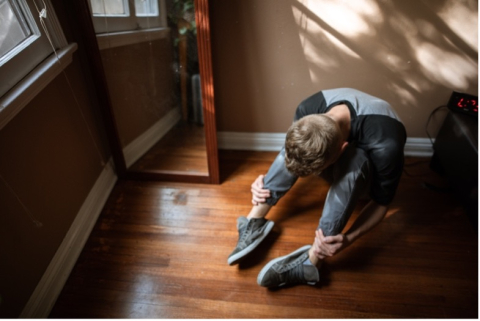Warning: this article contains content on rape and sexual assault which may be triggering for some readers.
The number of rapes being reported to police was at a record high in the year ending September 2022.
The statistics show that, in the vast majority of cases, sexual assault is committed by someone known to the victim. In the case of rape, victims are most likely to be assaulted by their partner or former partner.
Sexual assault reports at record high
According to the Office of National Statistics, there was a 22% increase in reporting of sexual assault across the UK compared to the year ending March 2020. This means that the number of police recorded sexual assaults in England and Wales is at a record high.
In London, for example, the number of rapes being reported to police has recently risen to more than 25 offences a day.
The Office for National Statistics warns that the increase in rape and sexual offences recorded might suggest that more people are coming forward to report offences. However, it is still likely that many survivors of sexual offences choose not to come forward, suggesting that the actual number of offences committed is even higher.
Sexual assault most likely perpetrated by partner or former partner
Analysis of the nature of sexual assault by rape or penetration (including attempts) between 2017 and 2020 suggests that more than four in ten (44%) of victims were abused in this way by their partner or former partner. Other common relationships between victim and perpetrators of these crimes were friends (12.1%), dates (9.9%) and family members (3.6%).
In 4.4% of cases, the actual or attempted rape or sexual assault by penetration was perpetrated by a colleague or peer of the victim from work, school, college or university.
Considering intersectionality
It is also important to be aware that histories of racism and distrust between Black and minoritised communities and the police, mean that Black and minoritised individuals may be more likely to turn to those they know for support, rather than reporting sexual abuse to the police.
According to a report by Imkaan, ‘research on criminal justice outcomes in sexual violence cases shows that white suspects are significantly more likely to avoid further investigation, especially if a victim is from a minoritised group, whilst offenders are more likely to be prosecuted if they are from a minoritised group’.
Reports on experiences of domestic abuse among women from South Asian backgrounds in the UK suggested that hostility towards immigrants in the media and fears of negative representation of the community can affect disclosures. This can mean that victims may be less likely to come forward and other family members and community leaders may become complicit in the abuse in a misguided attempt to protect the community’s reputation.
The role of the employer
Consult the NHS guidance to support an employee after rape or sexual assault. Victim support also offer specialist support and a free phone line: 080 8 16 89 111.
Raise awareness of the prevalence of sexual assault by sharing articles like these. Bring domestic abuse into the conversation when discussing sexual harassment at work and your organisation’s zero tolerance approach.
There is a common view that most assaults are perpetrated by strangers. Spread the word in your organisation that more than four in ten victims of sexual assault are abused by their partner or former partner. Remind your people of the different forms of domestic abuse. Find out more about the role and responsibility of the employer in response to domestic abuse here.
Find out more:
Analysis of the nature of sexual assault by rape or penetration between 2017 and 2020
Statistics on crime reporting from 2021-2022
Evening Standard article on the increase in records of rape in London

